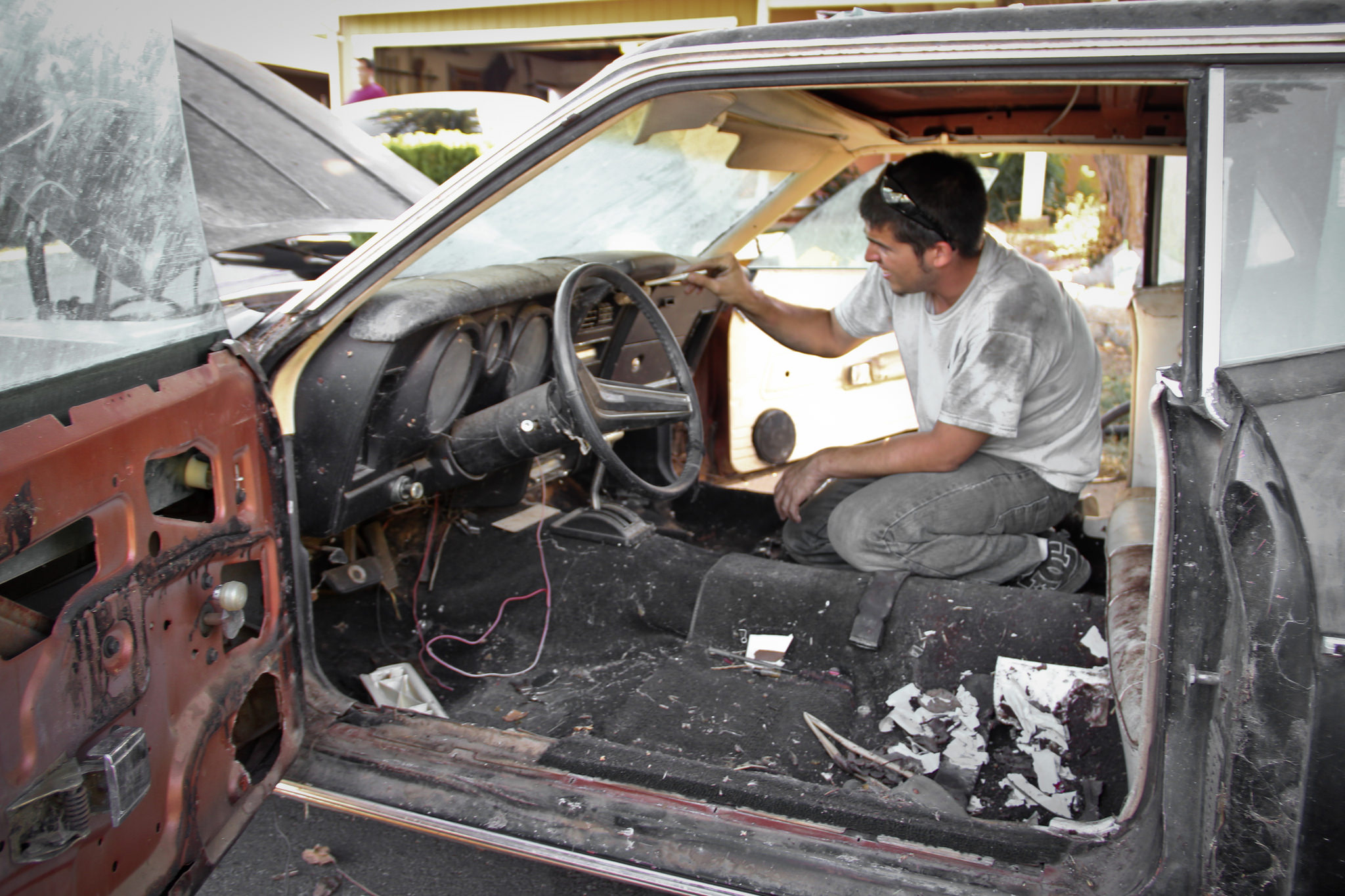Springsteen songs have a lot of cars and guys joining bands, sometimes about to make it big, or so they tell their girlfriends so their girlfriends will tell their dads. There are a lot of love songs, though we associate him with work. You can tell because he is invoked in the Wikipedia entry for proletarian poetry five times, enough to summon him and then almost summon him again.
It’s of a piece though. The car racing and band-joining and girlfriend-having repeatedly turn out to be substitutes for labor, killers and fillers of time. There’s a lot of dead time. The easy fact to miss is that Springsteen is less the poet of employment than of unemployment. “The River” is exemplary. It’s one of those life cycle songs. The narrator is from a place where you repeat your parents’ working-class lives with bummer exactitude, blunt repetition within which one hopes nonetheless to find pockets of joy and surprise, which is also what rock and roll was. The cycle unfolds, and it sounds like the long process of arriving at your own funeral. He gets his girl pregnant, which means a job and by the way [whispers] it also means the heavy work of childcare that we assume is left to Mary. Bruce rarely mentions this labor, to his discredit. He has his own story to tell. “And for my nineteenth birthday I got a union card and a wedding coat.”
But something happens because something has to happen. He has a job “for the Johnstown Company,” but it vanishes, in a world-historically awkward rhyme, “on account of the economy.” Oil crisis, stagflation, a bunch of shit we never recovered from, we just papered it over with finance and real estate deals. This is the difference that makes a difference between his dad’s life and his: the secure job has abandoned everyone including the white working class, which either does or doesn’t exist, Bruce’s imagined community. The population of Johnstown once held steady around 60,000; circa 1960 it collapsed. By 1980, the year of “The River,” after the oil crisis and stagflation, it was 35,500 and falling fast. It’s now around a third of its peak population, a profile remarkably similar to Detroit.
This is a huge vanishing of people and jobs, the conceit of The Leftovers but real and coiled in the heart of Springsteen’s glory days: the Rust Belt deindustrialization that throws former teenagers into cars and bands and bleak relationships and anger and booze and oxy. It’s the darkness at the edge of town and it’s coming in. Maybe it is wrong to say he is the poet of unemployment. He is the poet of the shift from the miserable dream of full employment to the terrifying vision of full unemployment, the unions dead on their feet, rock and roll dead in the water, all the muscle cars hustling for Lyft.
It is hard to make that a Wikipedia heading. In general, we like categories that are about x or y, not about the transformations from x to y, even if the latter get us a lot closer to reality. Nothing is static. Everything ends. Heraclitus says everything is flux and he is definitely the best among philosophers, a sketchy bunch. He would for sure have lied by proxy to Rosalita’s dad. He would also have told us that the social arrangement in which both your security and your misery are tied to employment, in which this casts a shadow on everything, casts a heavy shadow on love and on music and on dancing in the dark; he would tell you that this, like everything, is not an eternal category, not a natural truth, that it will pass away. And when we decide to drive as fast as possible we will not just be trying to escape.






